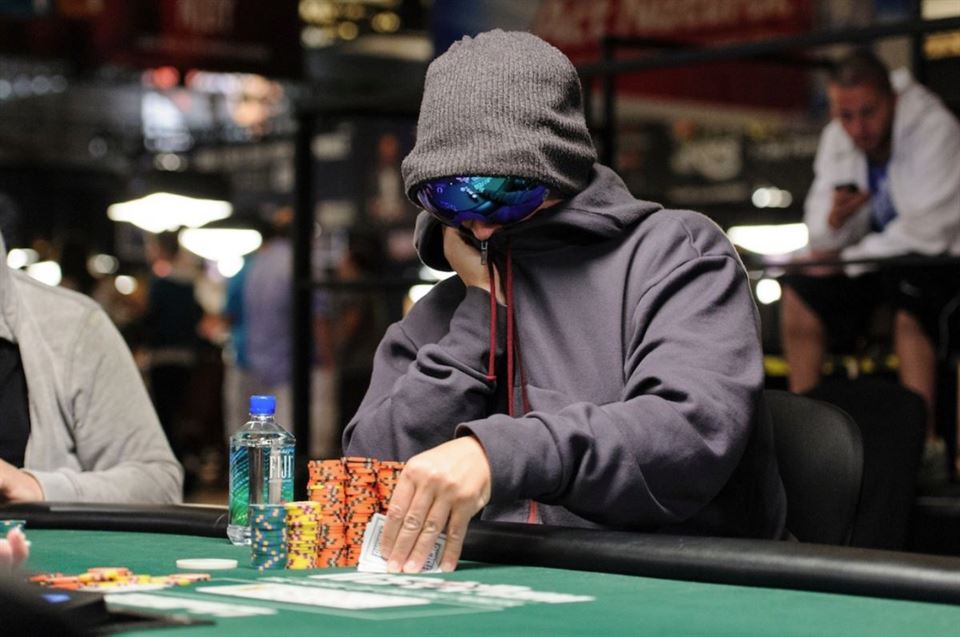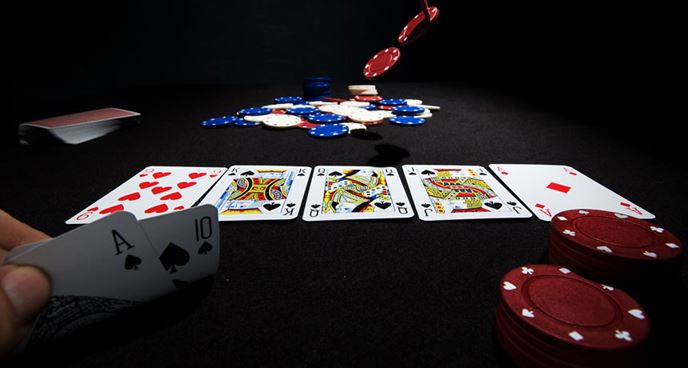In the world of poker, etiquette plays a crucial role in maintaining a fair and enjoyable gaming environment. However, there are certain mistakes that can be detrimental to the overall experience for both players and spectators. This article will highlight some of the worst poker etiquette mistakes that players should avoid at all costs. By understanding and adhering to proper poker etiquette, players can ensure a respectful and harmonious atmosphere at the poker table.
Proper Table Manners: How to Avoid Poker Etiquette Mistakes
Poker is a game that requires not only skill and strategy but also proper table manners and etiquette. While it may seem like a casual pastime, there are certain behaviors that can make or break the experience for everyone involved. In this article, we will explore some of the worst poker etiquette mistakes and provide tips on how to avoid them.
One of the most common mistakes that players make is talking too much during a hand. While it’s natural to want to engage in conversation and socialize, excessive talking can be distracting and disrupt the flow of the game. It’s important to remember that poker is a game of concentration, and any unnecessary chatter can throw off your opponents’ focus. So, it’s best to keep the conversation to a minimum and save the small talk for after the hand.
Another etiquette mistake that can ruin the atmosphere at the poker table is being a sore loser. Losing is an inevitable part of the game, and it’s crucial to handle it with grace and sportsmanship. Nobody likes a sore loser who throws a tantrum or berates other players. Instead, take your losses in stride and use them as an opportunity to learn and improve your skills. Remember, poker is a game of ups and downs, and maintaining a positive attitude is essential.
On the flip side, being a poor winner is also a major etiquette faux pas. Gloating and rubbing your victories in other players’ faces is not only disrespectful but can also create a hostile environment. It’s important to remember that poker is a social game, and maintaining good relationships with your fellow players is crucial. So, when you win a hand, graciously accept your winnings and avoid any unnecessary displays of triumph.
One of the most significant mistakes that novice players make is not paying attention to the action. Whether it’s constantly checking your phone, daydreaming, or simply not paying attention, being disengaged from the game is not only rude but can also lead to costly errors. Poker requires constant focus and awareness of what’s happening at the table. So, put away any distractions and make a conscious effort to stay engaged throughout the game.
Another common etiquette mistake is slow playing or deliberately stalling the game. While it’s acceptable to take your time to make decisions, excessively delaying the game can frustrate other players and disrupt the flow of the game. It’s important to be mindful of the pace of the game and make your decisions in a timely manner. If you need extra time to think, it’s courteous to let the other players know.
Lastly, one of the most egregious etiquette mistakes is cheating. Cheating not only undermines the integrity of the game but also ruins the experience for everyone involved. Whether it’s marking cards, colluding with other players, or using electronic devices, cheating is strictly prohibited and can result in severe consequences. It’s essential to play the game with honesty and integrity, respecting the rules and the spirit of fair play.
In conclusion, proper table manners and etiquette are crucial in maintaining a pleasant and enjoyable poker experience. By avoiding common mistakes such as excessive talking, being a sore loser or a poor winner, not paying attention, slow playing, and cheating, you can ensure a respectful and fair game for all players involved. So, the next time you sit down at the poker table, remember to play with grace, respect, and good sportsmanship.
Respectful Behavior: The Importance of Sportsmanship in Poker
Poker is not just a game of skill and strategy; it is also a game of etiquette. In the world of poker, respectful behavior and sportsmanship are of utmost importance. While it may seem like a simple card game, the way players conduct themselves at the table can greatly impact the overall experience for everyone involved.
One of the most crucial aspects of poker etiquette is maintaining a respectful demeanor. This means treating your opponents with courtesy and avoiding any form of disrespectful behavior. It is essential to remember that poker is a social game, and being rude or disrespectful can ruin the atmosphere for everyone.
One common mistake that many players make is trash-talking their opponents. While some may argue that trash-talking is a part of the game, it is important to draw a line between friendly banter and outright insults. Engaging in derogatory comments or personal attacks not only reflects poorly on the individual but also creates a hostile environment that can negatively impact the game.
Another aspect of respectful behavior in poker is being mindful of your actions and their impact on the game. This includes avoiding excessive celebration or gloating after winning a hand. While it is natural to feel excited about a victory, rubbing it in your opponents’ faces is considered poor sportsmanship. Instead, it is more appropriate to acknowledge your win gracefully and move on to the next hand.
Furthermore, it is crucial to avoid any form of cheating or dishonesty in poker. Cheating not only undermines the integrity of the game but also shows a lack of respect for your opponents. This includes actions such as marking cards, colluding with other players, or using electronic devices to gain an unfair advantage. Cheating not only tarnishes your reputation but can also lead to severe consequences, including being banned from poker establishments.
Respecting the dealer and the rules of the game is another essential aspect of poker etiquette. The dealer plays a crucial role in maintaining order and fairness at the table. It is important to treat them with respect and avoid any form of criticism or blame for the outcome of a hand. Additionally, following the rules of the game, such as not acting out of turn or revealing your cards prematurely, is essential for maintaining a fair and enjoyable playing environment.
Lastly, being a gracious loser is just as important as being a gracious winner. Accepting defeat with dignity and without making excuses or blaming others is a sign of good sportsmanship. It is important to remember that losing is a part of the game, and how you handle defeat says a lot about your character.
In conclusion, respectful behavior and sportsmanship are vital in the world of poker. Treating opponents with courtesy, avoiding trash-talking, and being mindful of your actions are all crucial aspects of poker etiquette. Cheating, disrespecting the dealer, and failing to accept defeat gracefully are all considered poor sportsmanship. By adhering to these principles, players can create a positive and enjoyable playing environment for everyone involved. So, the next time you sit down at a poker table, remember to play not only with skill but also with respect and sportsmanship.
Mind Your Language: Common Poker Etiquette Mistakes to Avoid
Poker is a game that requires not only skill and strategy but also a certain level of etiquette. Just like any other social activity, there are certain rules and norms that players are expected to follow. Unfortunately, not everyone is aware of these rules, and as a result, they end up making some serious etiquette mistakes. In this article, we will discuss some of the worst poker etiquette mistakes that you should avoid at all costs.
One of the most common etiquette mistakes that players make is using inappropriate language at the table. Poker can be an intense and competitive game, but that doesn’t mean you should let your emotions get the best of you. Swearing, shouting, or using offensive language is not only disrespectful to your opponents but also disrupts the flow of the game. Remember, poker is a game of skill and strategy, not a platform for venting your frustrations.
Another etiquette mistake that many players make is not paying attention to the game. Whether it’s constantly checking your phone, engaging in side conversations, or simply daydreaming, not paying attention to the game is not only rude but also puts you at a disadvantage. Poker requires focus and concentration, and by not giving the game your full attention, you are not only disrespecting your opponents but also hindering your own chances of winning.
One of the cardinal sins of poker etiquette is slow playing. Slow playing refers to intentionally taking an excessive amount of time to make a decision. While it’s true that poker is a game of strategy and taking your time to make the right move is important, intentionally slowing down the game is considered bad form. It not only slows down the pace of the game but also frustrates your opponents. Remember, poker is meant to be an enjoyable experience for everyone at the table, and intentionally slowing down the game goes against that spirit.
Another etiquette mistake that many players make is not following the proper betting procedures. In poker, there are specific rules and procedures for betting, and not following them can lead to confusion and frustration. Whether it’s not announcing your bets clearly, string betting (placing chips in the pot in multiple motions), or not putting your chips in the right place, not following the proper betting procedures is a surefire way to annoy your opponents and disrupt the game.
Lastly, one of the most important etiquette mistakes to avoid is not being a gracious loser or winner. Poker is a game of ups and downs, and it’s important to handle both winning and losing with grace and dignity. Gloating over your victories or berating your opponents when you lose is not only disrespectful but also reflects poorly on your character. Remember, poker is just a game, and it’s important to maintain a sense of sportsmanship and respect for your fellow players.
In conclusion, poker etiquette is an important aspect of the game that should not be overlooked. By avoiding common etiquette mistakes such as using inappropriate language, not paying attention to the game, slow playing, not following proper betting procedures, and not being a gracious loser or winner, you can ensure a more enjoyable and respectful poker experience for yourself and your fellow players. So, the next time you sit down at the poker table, remember to mind your language and follow the rules of etiquette.
Handling Chips and Cards: Etiquette Tips for Poker Players
Poker is a game that requires not only skill and strategy but also a certain level of etiquette. While it may seem like a casual game, there are certain rules and behaviors that players should adhere to in order to maintain a respectful and enjoyable atmosphere at the table. In this article, we will discuss some of the worst poker etiquette mistakes that players often make when it comes to handling chips and cards, and provide some tips on how to avoid them.
One of the most common mistakes that players make is mishandling their chips. It may seem like a small thing, but the way you handle your chips can have a big impact on the game. For example, slamming your chips down on the table after winning a hand can be seen as disrespectful and unsportsmanlike. Instead, it is important to handle your chips with care and place them gently on the table when making bets or collecting winnings.
Another mistake that players often make is not keeping their cards properly hidden. In poker, it is crucial to keep your cards concealed from other players in order to maintain the integrity of the game. This means that you should never expose your cards to anyone other than the dealer or the other players involved in the hand. It is also important to avoid peeking at your cards before it is your turn to act, as this can give you an unfair advantage over your opponents.
Furthermore, it is important to be mindful of the pace of the game when handling chips and cards. Taking too long to make a decision or constantly fumbling with your chips can slow down the game and frustrate other players. On the other hand, rushing through your actions can also be seen as impolite and disrespectful. It is important to find a balance and maintain a steady pace throughout the game.
Additionally, it is crucial to be aware of the noise level when handling chips and cards. Excessive shuffling or riffling of chips can be distracting and disruptive to other players. Similarly, flipping or snapping your cards can create unnecessary noise and make it difficult for others to concentrate. It is important to be mindful of the noise you are making and try to keep it to a minimum.
Lastly, it is important to be respectful of the dealer and the other players at the table. This means refraining from criticizing or berating other players for their decisions or gameplay. It is also important to avoid excessive celebration or gloating when winning a hand, as this can create a hostile and uncomfortable environment. Instead, it is important to maintain a positive and friendly demeanor throughout the game.
In conclusion, handling chips and cards in a respectful and considerate manner is an essential part of poker etiquette. By avoiding common mistakes such as mishandling chips, exposing cards, disrupting the pace of the game, creating excessive noise, and being disrespectful to others, players can contribute to a more enjoyable and harmonious poker experience. So, the next time you sit down at the poker table, remember to keep these etiquette tips in mind and play the game with grace and respect.
Pay Attention: Common Etiquette Mistakes at the Poker Table
Poker is a game that requires not only skill and strategy but also a certain level of etiquette. While it may seem like a casual game, there are certain rules and behaviors that players should adhere to in order to maintain a respectful and enjoyable atmosphere at the poker table. Unfortunately, not everyone is aware of these etiquette guidelines, and as a result, some players make common mistakes that can be quite frustrating for others. In this article, we will explore some of the worst poker etiquette mistakes and provide tips on how to avoid them.
One of the most important aspects of poker etiquette is paying attention to the game. It is crucial to be fully present and engaged in the hand, as any distractions can disrupt the flow of the game and annoy other players. One common mistake is using electronic devices at the table. Whether it’s checking your phone or browsing the internet, these actions not only show a lack of respect for the game but also slow down the pace of play. To avoid this, it is best to keep your phone on silent and out of sight during the game.
Another etiquette mistake that often occurs is excessive talking. While friendly banter and conversation can be enjoyable, it is important to remember that poker is a game of focus and concentration. Constantly chatting and engaging in unrelated conversations can distract both yourself and other players, leading to mistakes and frustration. It is best to save the small talk for breaks or after the game, allowing everyone to fully concentrate on the hand at hand.
Furthermore, it is essential to be mindful of your actions and movements at the poker table. One common mistake is acting out of turn. This occurs when a player makes a decision or takes an action before it is their turn to do so. Acting out of turn can disrupt the natural flow of the game and give an unfair advantage to certain players. To avoid this, it is important to wait for your turn and pay attention to the action.
Additionally, it is crucial to handle your chips and cards with care. Slamming chips onto the table or throwing cards haphazardly not only shows a lack of respect for the game but can also damage the equipment. Treating the chips and cards with care not only maintains a professional atmosphere but also ensures that the game can continue smoothly without any interruptions.
Lastly, it is important to be a gracious winner and loser. Poker is a game of both skill and luck, and it is inevitable that you will experience both wins and losses. However, it is crucial to handle these outcomes with grace and respect. Gloating over a win or berating other players after a loss is not only poor sportsmanship but also creates a hostile environment at the table. Instead, it is best to congratulate the winner and accept defeat gracefully, maintaining a positive and enjoyable atmosphere for all players involved.
In conclusion, poker etiquette is an essential aspect of the game that should not be overlooked. By paying attention, avoiding distractions, and being mindful of your actions, you can ensure a respectful and enjoyable atmosphere at the poker table. Remember to be present, avoid excessive talking, act in turn, handle chips and cards with care, and be a gracious winner and loser. By following these guidelines, you can enhance your poker experience and contribute to a positive environment for all players.
Etiquette Blunders: Mistakes to Avoid in Poker Tournaments
Poker is a game that requires not only skill and strategy but also a certain level of etiquette. Whether you’re playing in a friendly home game or a high-stakes tournament, it’s important to be aware of the unwritten rules of the game. Unfortunately, not everyone is familiar with these rules, and as a result, there are some common etiquette mistakes that can ruin the experience for everyone involved.
One of the most egregious etiquette blunders in poker is slow playing. Slow playing is when a player intentionally takes an excessive amount of time to make a decision. This can be incredibly frustrating for other players at the table, as it slows down the pace of the game and disrupts the flow. While it’s important to take your time and make thoughtful decisions, it’s equally important to be mindful of the other players and keep the game moving.
Another etiquette mistake that can be detrimental to the game is excessive talking. While it’s natural to engage in conversation during a poker game, excessive talking can be distracting and disruptive. It’s important to remember that poker is a game of focus and concentration, and excessive talking can interfere with that. It’s best to keep the conversation to a minimum and save the chit-chat for after the game.
One of the cardinal sins of poker etiquette is revealing your hand before the showdown. This is known as “mucking” your cards, and it’s considered extremely poor sportsmanship. When you muck your cards prematurely, you not only give away valuable information to your opponents but also disrupt the integrity of the game. It’s important to wait until the showdown to reveal your hand, as this is part of the excitement and suspense of the game.
Another etiquette mistake that can be frustrating for other players is string betting. String betting is when a player makes a bet in multiple motions, rather than in one fluid motion. This can be confusing for both the dealer and the other players, as it’s difficult to determine the actual amount of the bet. To avoid this mistake, it’s important to announce your bet clearly and place the chips in one motion.
One of the most important aspects of poker etiquette is respecting the dealer. The dealer is responsible for running the game and ensuring that the rules are followed. It’s important to treat the dealer with respect and refrain from criticizing or berating them. Remember, the dealer is just doing their job, and it’s not their fault if you’re having a bad run of cards.
In conclusion, poker etiquette is an essential part of the game. By avoiding these common mistakes, you can ensure a more enjoyable experience for yourself and the other players at the table. Remember to keep the game moving, minimize excessive talking, wait until the showdown to reveal your hand, avoid string betting, and respect the dealer. By following these guidelines, you’ll not only improve your own poker skills but also contribute to a positive and respectful poker community. In conclusion, it is important for poker players to be aware of and avoid certain etiquette mistakes. These include not paying attention to the game, acting out of turn, being disrespectful towards other players, and revealing information about one’s hand. By practicing good poker etiquette, players can create a more enjoyable and fair gaming environment for everyone involved.




